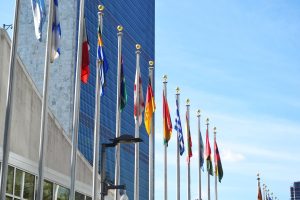“A constitution that is not for everyone, is for no one,” warned Norberto Bobbio. And yet, for over a decade, Bolivia has been governed by a Constitution that does not unify but fragments; one that fails to harmonize diversity and instead imposes a particular worldview — legitimate, but partial — as if it were the soul of an entire nation.
The 2009 Constitution, born amid the euphoria of a so-called “refoundation,” was introduced as a lifeline of identity. But today, fifteen years later, its ideological and ethnocentric bias has become evident. It is not merely that plurinationalism was poorly implemented — the very concept has contributed to dismantling civic equality, institutionalizing irreconcilable differences, and justifying symbolic privileges under the guise of inclusion.
Every state needs symbols, but a Constitution is not an epic poem — it is a contract among equals. Rousseau made it clear: the general will is not imposed; it is agreed upon. In Bolivia, however, there was no agreement, only imposition. The constitutional text was passed under pressure, with dissenting voices excluded, and by a Constituent Assembly whose diversity was more ethnic than ideological. The “refoundation” was not republican — it was sacred, as if scripting a new Bolivian genesis.
The consequences are now undeniable: a judiciary that fails to deliver justice; a Constitutional Court subordinated to the Executive; individual rights overshadowed by communitarian discourse; and legal and symbolic fragmentation, all justified in the name of an inclusion that turned out to be vertical and utilitarian. Plurinationalism was not merely hijacked by the State — it was designed to fracture civic unity, romanticizing diversity in a way that ultimately served the interests of power.
I do not advocate a return to the old republican order untouched. Bolivia has changed, and that change must be acknowledged. But I believe we need a new Constitution — one that is sober, restrained, stripped of ideological ornaments and cosmological metaphors. A Constitution is not a mirror of who we were, but a map toward who we wish to become. And that future must be built on equal rights, real justice, and limited powers.
Montesquieu once said that all power tends to abuse its power. Bolivia has proven this time and again. It is time to build a new constitutional framework that revives the liberal principle of separation of powers, embraces diffuse constitutional review — more horizontal, less manipulable — and reimagines justice not as symbolic theater, but as a real guarantee of rights.
The 2009 Constitution was a chapter. But nations cannot live forever in past chapters. Bolivia must move beyond myth and into the republic — a republic without ethnic purity or ideological servitude. A Constitution for all. Nothing less.



